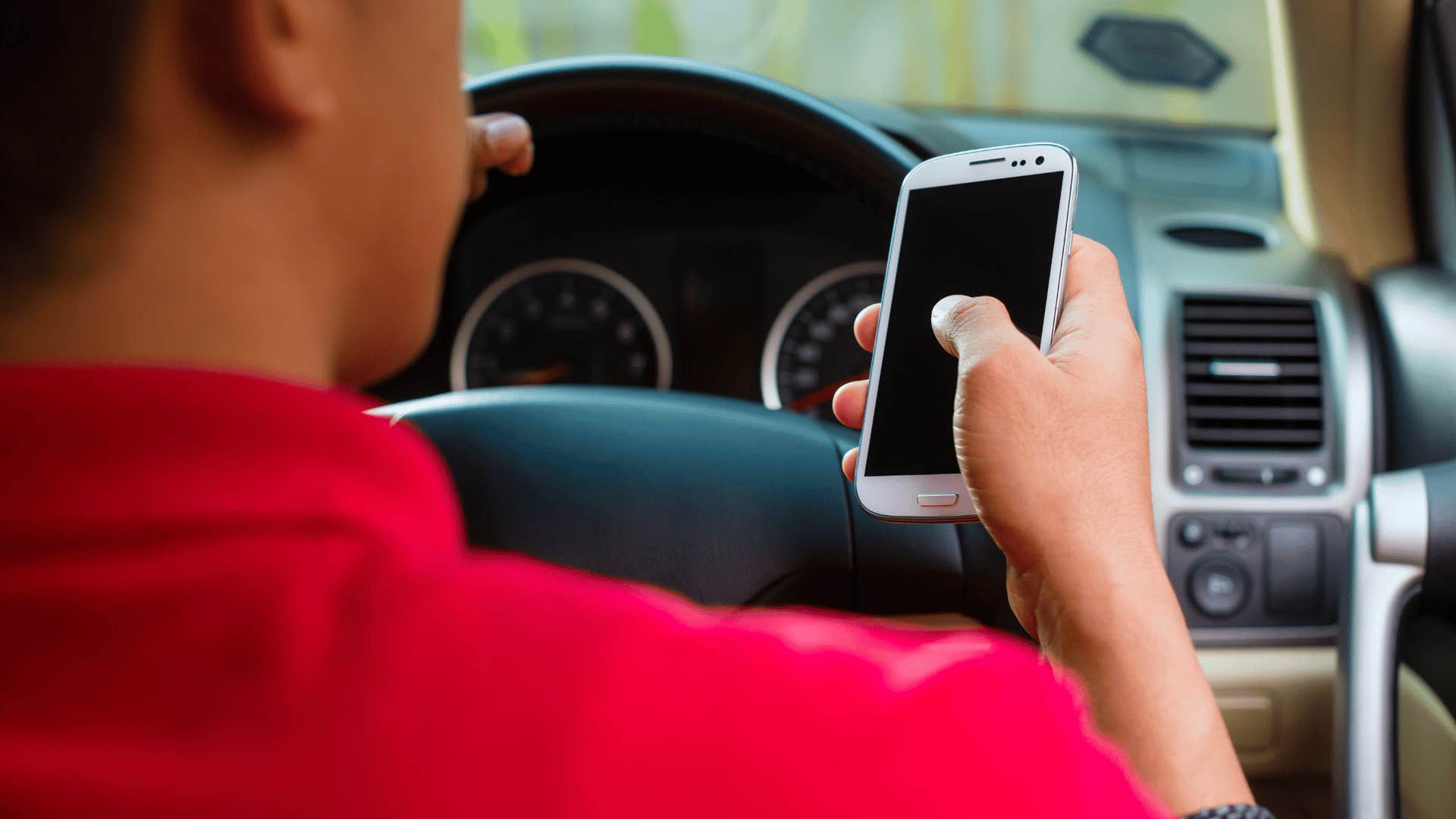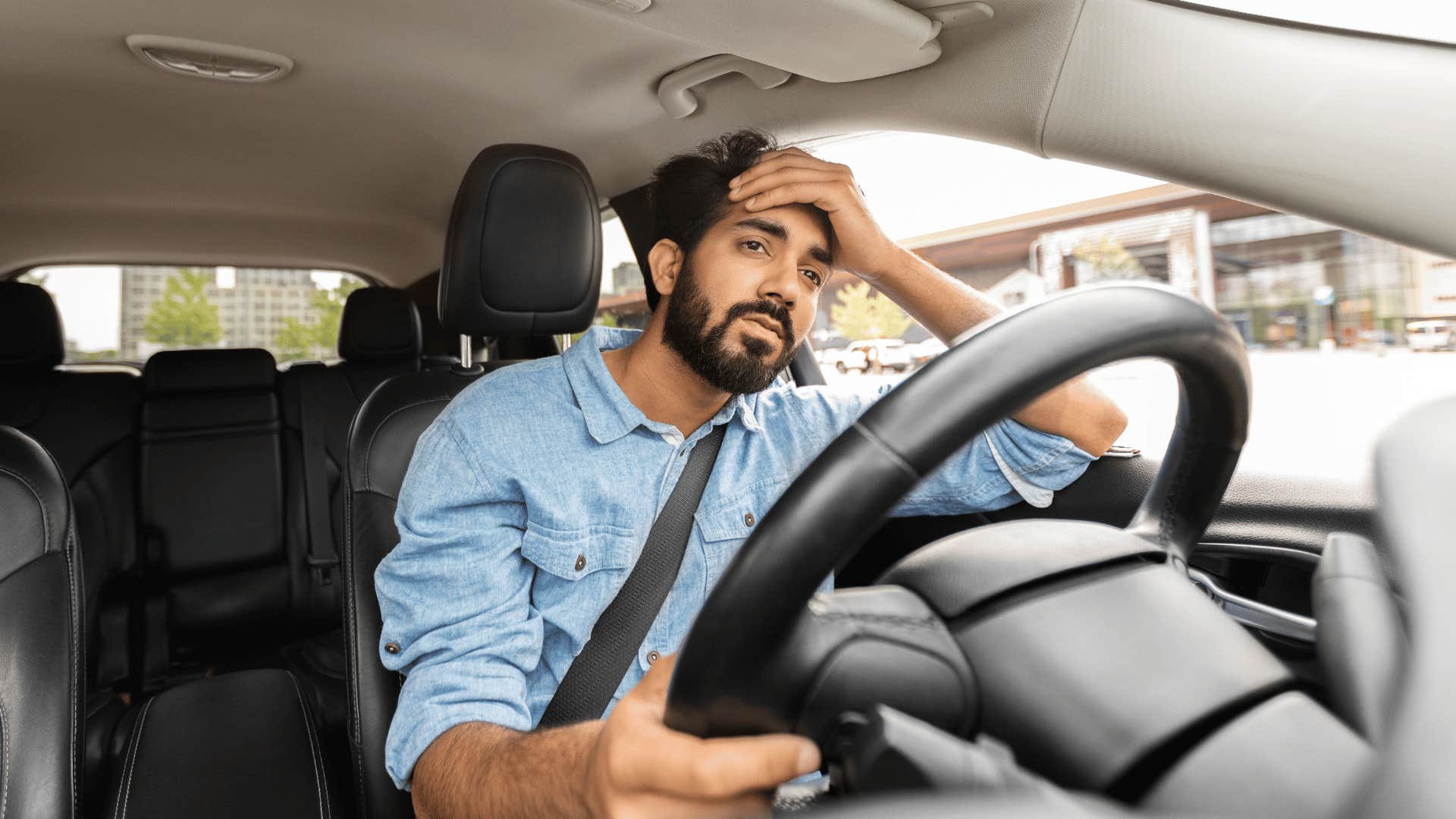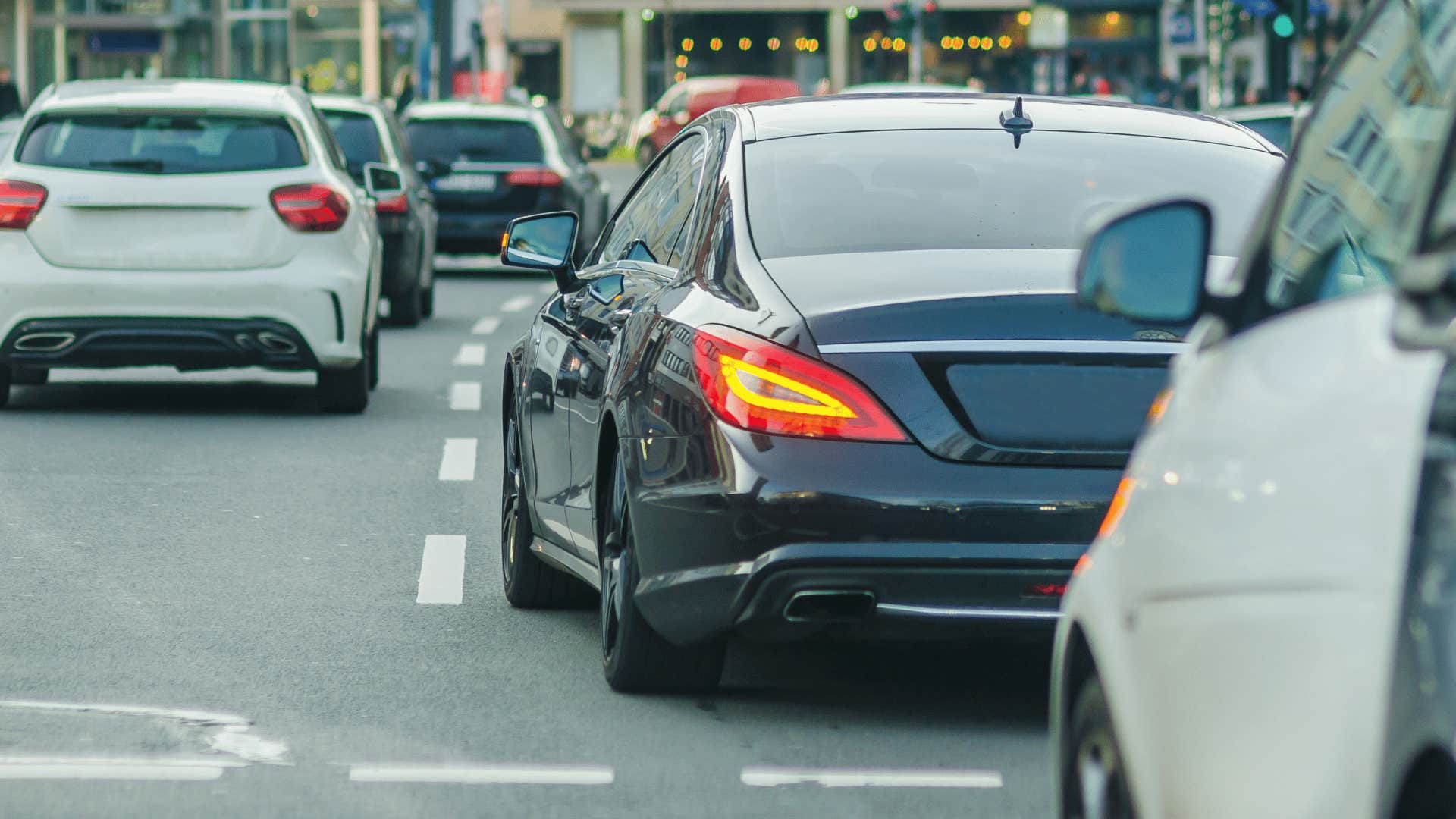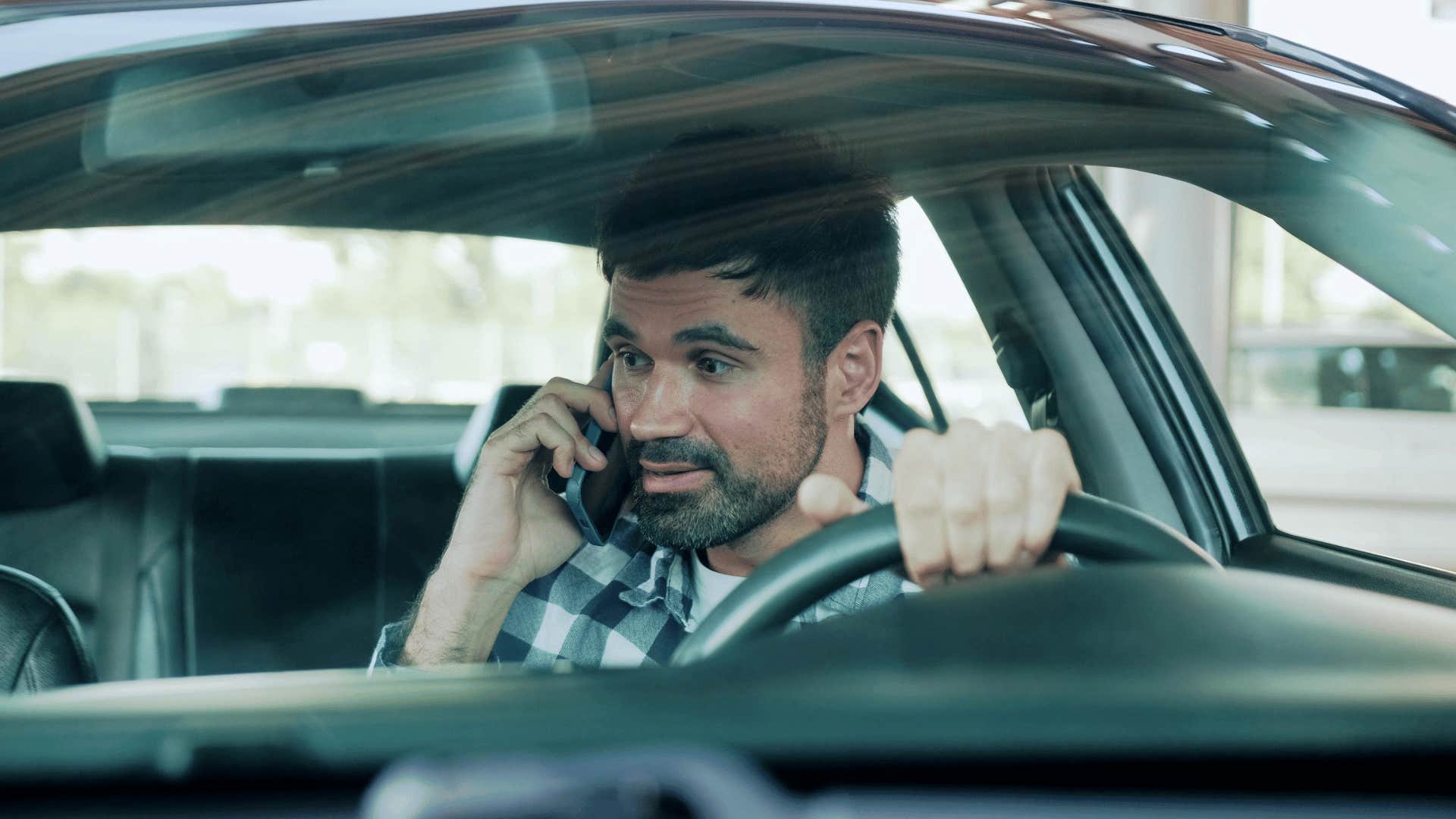11 Annoying Driving Habits People Hate Most, According To Traffic Psychology
Stop being the worst person behind the wheel.
 Ksenia Kartasheva | Canva
Ksenia Kartasheva | Canva Most drivers, if asked, would say they considered themselves good at driving. This is especially true for those who got our licenses a decade or several ago. While not all bad driving habits lead to fatal accidents, they can result in traffic violations and put undue stress on your car. There are, however, particular driving habits that people detest most, which we'll get into in a bit.
Beyond having a high regard for your life, paying attention to a person's driving skills and habits behind the wheel can tell you a lot about someone, too. In recent years, a relatively new vein of scientific research called traffic psychology has been able to decipher a good deal about someone’s personality based on how they drive and their behavior around their cars.
Here are the 11 most annoying driving habits people hate most:
1. Not yielding to pedestrians in the crosswalk
 Kaique Rocha / Pexels
Kaique Rocha / Pexels
Not stopping or yielding to pedestrians might indicate a person thinks more highly of himself than they do of others. They may think their time is more valuable than others or see themselves as above the law.
Research from the University of California, Berkeley noted that none — not one — of the cars in the “beater-car category" drove through the crosswalk, endangering the lives of the pedestrians during their studies. However, people who drove luxury or premium cars were not nearly as observant of the traffic laws.
If a person does this, notice if they're daydreaming, distracted with all the fancy gadgets in their car, or potentially busy on their smartphone.
2. Not giving the right of way
 silverkblackstock / Shutterstock
silverkblackstock / Shutterstock
There is a higher likelihood that someone who drives a luxury vehicle will act as if they are more important. It’s a version of being classist but on the road.
A 2023 study explored differences in drivers' right-of-way attitudes and the utility of right-of-way attitudes for predicting drivers’ driving behaviors. The results predicted prosocial and aggressive driving behavior. The higher the correctness of drivers’ right-of-way attitudes, the higher the level of prosocial driving behavior and the lower the level of aggressive driving behavior.
If you saw someone exhibiting this behavior, I would also pay close attention to how he treats the valet, waitstaff, or porter. If they treat them poorly, you may have someone showing signs of narcissism.
3. Not waving 'thank you' when another car lets them merge or cut in
 fast-stock / Shutterstock
fast-stock / Shutterstock
The “thank you" wave as someone yields to you is an indication of acknowledging another’s thoughtfulness and shows someone doesn’t have a feeling of entitlement.
Someone who doesn't give the universal 'thank you' nod doesn't have good etiquette and their bad manners most likely spill over into how they deal with people off the road, too.
4. Pumping on and off the brakes or not maintaining a consistent speed
 Prostock-studio / Shutterstock
Prostock-studio / Shutterstock
As a passenger, this is one of the most annoying things to suffer through and a sign a person hasn't mastered driving yet.
According to research by The American Automobile Association, this habit indicates poor braking technique. It can disrupt the driver behind you by causing unnecessary jerking motions and repeated pressure, especially when not needed in most driving situations, and can prematurely wear down your brake pads and rotors. In most modern cars, consistently applying firm pressure is generally more effective than pumping the brakes.
There may be reasons someone doesn't feel like a confident driver. Maybe they were in a car wreck as a kid and have PTSD around driving. Or maybe they're colorblind and that makes him doubt their abilities.
5. Distracted driving
 Kzenon / Pexels
Kzenon / Pexels
Research from the National Center for ADHD confirms drivers with ADHD appear particularly at risk of distractions during periods of low stimulus or dull driving, such as long-distance highway driving. Distractions can be anything, including changing radio stations, eating, talking, and daydreaming.
6. Not pulling over for emergency vehicles or funeral processions
 blurAZ / PShutterstock
blurAZ / PShutterstock
Not only is this the lawful thing to do, but it’s also courteous. Luckily, most people do this automatically, but if a person doesn't, it's a giant "red flag" that they have narcissistic behaviors — thinking they're better than others and that the laws don’t apply to him.
Drivers might not pull over for reasons such as not noticing the emergency vehicle due to distractions, misinterpreting the problem, being unaware of the law, driving in heavy traffic where maneuvering is challenging, or simply not prioritizing the need to yield to emergency vehicles. In some cases, according to a 2020 study, drivers might also be in denial about the seriousness of the situation or feel a sense of urgency themselves, leading to poor decision-making.
7. Deliberately 'blocking the box'
 Andrey Mihaylov / Shutterstock
Andrey Mihaylov / Shutterstock
"Blocking the box" is when the traffic ahead is backed up but a person goes through a yellow light anyway, so he ends up blocking the intersection. Statistically speaking, the same team of researchers from Berkeley (the ones who analyzed a person's prevalence for blocking the pedestrian walkway based on the type of car they drove) found individuals who have "nicer" cars tend to do this more often than owners of less prestigious vehicles.
If a person blocks the box, this could show he thinks more highly of his time than that of others. Done consistently, it indicates a person is rude and uses poor judgment.
8. Stopping on a dime
 Prostock-studio / Shutterstock
Prostock-studio / Shutterstock
Maybe a person is in a hurry, has poor depth perception, or has a slow perception-reaction time. Whatever the case, this is unpleasant driving behavior. Consistently stopping abruptly may also signify a lack of good time management skills.
9. Performing a 'California roll' at a stop sign
 Marco Pastorio / Shutterstock
Marco Pastorio / Shutterstock
Doing a rolling stop is simply a bad habit. Most frequently, a person will roll through a stop sign driving in an area they drive regularly, which has made them lazy. It’s a careless driving move and might be a sign of absentmindedness.
10. Not signaling a turn or lane change
 Cars and Travels / Shutterstock
Cars and Travels / Shutterstock
The only time this is legal is when there are no cars on the road. So 99 percent of the time, someone should be using his turn signal when changing lanes, as both a matter of safety and so as not to receive a moving violation.
If this is a persistent driving habit, it may mean a person is a little sloppy, distracted emotionally, mentally preoccupied, or potentially feels they're above the law on this slight infraction.
11. Use of aggressive language or gestures
 New Africa / Shutterstock
New Africa / Shutterstock
Psychological scientists from Ohio State University teamed up with researchers at the University of Luxembourg for three studies to see if narcissism predicted aggressive driving, which is the cause of more than half of all traffic accidents in the United States alone.
They were studying individuals with subclinical levels of narcissism. Those who ranked themselves as a 4 or 5 level (out of 5) for statements such as “I like to be the center of attention,” or “I am an extraordinary person, were likely to show more narcissistic traits.
There was a high correlation between narcissistic individuals and aggressive driving behavior found in statements like, “I often swear when driving a car,” or “When driving my car, I easily get angry about other drivers.”
They also found participants who scored high on narcissism were more likely to tailgate, speed, drive off-road, cross the center line into oncoming traffic, drive on the shoulder, and honk their horns.
12. Using the phone while driving
 Nataliya Dmytrenko / Shutterstock
Nataliya Dmytrenko / Shutterstock
It’s best for everyone to stay off of smartphones while behind the wheel, but the sad truth is, many people don't. However, some people are more prone to using cell phones while driving than others.
In a study around the "Big Five" personality traits test model — which cites openness, conscientiousness, extraversion, agreeableness, and neuroticism as people's five core personality traits — researchers found that people who are more conscientious and agreeable are more likely to want to reply quickly to texts or missed phone calls. This makes them more likely to be distracted. Extroverts were found to use cell phones more than introverts.
While driving, it’s always better for a person to let their co-pilot navigate or use a phone’s features, not them. It’s the smart thing to do and also indicates their level of maturity.
Joy Nordenstrom is a relationship coach based in the San Francisco Bay Area, who helps men and women overcome attachment issues and build healthy relationship skills that foster lasting love.

